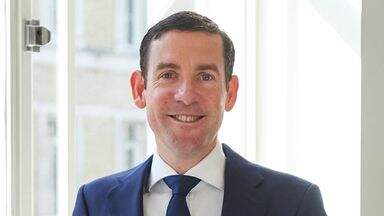Continuing the discussion from Greensill: David Cameron 'made $10m' before company’s collapse:
Lord Cameron has denied he was paid £10m by the collapsed financial firm Greensill Capital but has declined to disclose his earnings as its advisor.
After being asked on the Laura Kuenssberg on Sunday show if he had been paid £10m by Greensill Capital, Lord Cameron said: “No, that isn’t true.” He said he was a “private citizen” at the time having resigned as prime minister. He has since stepped down from every outside job since returning to politics, he told the programme.
Since re-joining government as foreign secretary, Lord Cameron said he had “explained the companies” he had been working for to the House of Lords’ Standards Commissioner. It was up to the government to decide what financial information is made public, he added.
Greensill Capital, whose boss Lex Greensill was given an office in Downing Street under Mr Cameron’s premiership, collapsed in March 2021. Mr Greensill later hired Lord Cameron as an adviser. In this role he tried to persuade ministers to allow the firm to join a scheme called the Corporate Covid Financing Facility (CCFF). This would have allowed the company to issue loans, insured by the government, to help firms through the pandemic.
Mr Cameron was unsuccessful in his attempts and Greensill Capital later collapsed with the loss of 440 jobs, and possible billion-pound losses for investors. Criminal inquiries into alleged fraud are ongoing in Germany and Switzerland, where Mr Greensill has been named as a suspect.

Mr Greensill previously denied allegations from MPs on the Commons Treasury Committee in 2021 that his collapsed finance firm was a “fraud” or a “Ponzi scheme” and blamed the firm’s collapse on the withdrawal of cover from its insurers.
In a Ponzi scheme, a con artist offers investments that promise very high returns with little or no risk to their victims. The returns are said to originate from a business or a secret idea run by the con artist. In reality, the business does not exist or the idea does not work in the way it is described. The con artist pays the high returns promised to their earlier investors by using the money obtained from later investors. Instead of engaging in a legitimate business activity, the con artist attempts to attract new investors to make the payments that were promised to earlier investors. The operator of the scheme also diverts clients’ funds for the operator’s personal use.
With little or no legitimate earnings, Ponzi schemes require a constant flow of new money to survive. When it becomes hard to recruit new investors, or when large numbers of existing investors cash out, these schemes collapse. As a result, most investors end up losing all or much of the money they invested. In some cases, the operator of the scheme may simply disappear with the money.
Cameron’s an outright liar.
